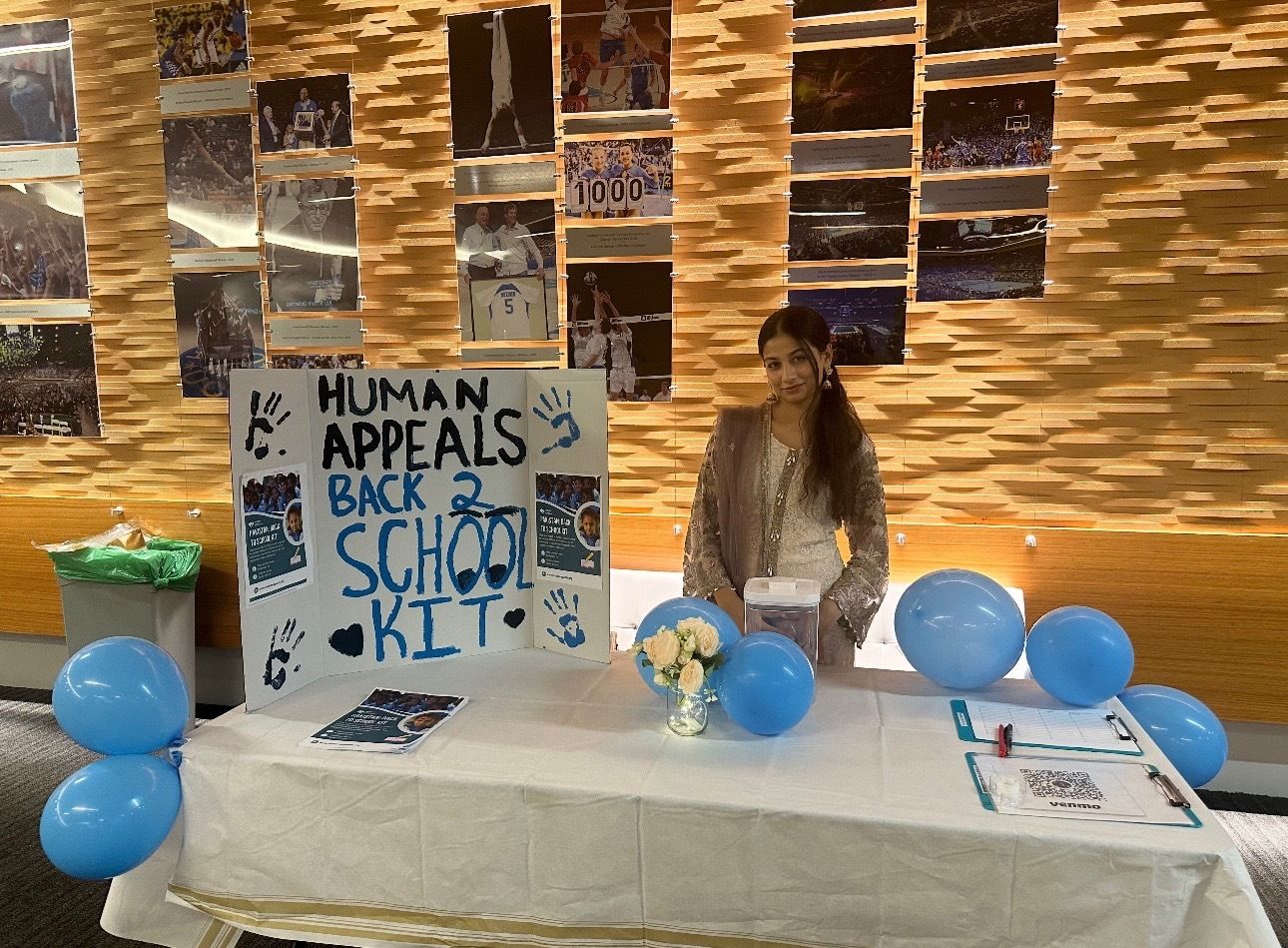- The Impact Journal
- Posts
- The Stanford Freshman Fighting Illiteracy for 24,000+ Youth Worldwide
The Stanford Freshman Fighting Illiteracy for 24,000+ Youth Worldwide
Malaika founded "Empower With Literacy," a global youth-led nonprofit that has already reached more than 24,000 youth across 13+ countries.
When Syeda Malaika Ali was five years old, her sister underwent a series of life-threatening surgeries due to a congenital heart defect. At the time, she didn’t understand why her family was experiencing such hardship.
Years later, Malaika learned the reason: her parents were first cousins. The condition was genetic—and tragically, her family’s story wasn’t unique. In many South Asian communities, incestuous marriages remain common due to a widespread lack of education, particularly among women.
Rather than being paralyzed by this truth, Malaika felt compelled to act. She founded Empower With Literacy, a global youth-led nonprofit that has already reached more than 24,000 youth across 13+ countries. From tutoring Nigerian girls who’ve been told school isn’t for them, to teaching women in Asia how to run their own small businesses, Malaika has turned personal pain into global purpose.
Here’s how she built Empower With Literacy from scratch—and what she’s learned along the way.
If you’re a current high school student interested in starting your own initiative and standing out in university applications — you can sign up for a 30-minute extracurricular review. During the call, we'll:
a) Learn about your university goals
b) Review your extracurricular profile
c) Help you shape a unique project idea.
#1: What does Empower With Literacy do?

Malaika: Empower With Literacy is a 501(c)(3) nonprofit, and we run four main service programs:
Sponsor a Student – directly funding educational expenses
Books & School Supply Donations – distributing educational materials to underserved communities
Blog-Writing Platform – amplifying the voices of underprivileged youth and women
International Interactions – live projects like our tutoring initiative with girls in Nigeria.
In that project, we’re working with a community of girls who’ve been told their education doesn’t matter. We're providing them with literacy tools and helping them develop the mindset to overcome those societal pressures.
My personal story is obviously a big part of why I started this. I thought: If I’ve been through these experiences and made it out, I have a responsibility to help prevent others from going through the same. That’s where it all began.
#2: How did you spread your organization’s message in the first stages?

Malaika: Outreach, research, and, most importantly, a pitch that reflects your authentic passion.
We started by reaching out to college organizations like UCLA and USC. At the time, we had no real connections or traction, so we focused everything on how we communicated our vision. I remember sending over a pitch email and attaching a full project plan to show how serious we were.
That one yes sparked a snowball. We followed up by sending flyers to school principals, tapping into youth programs around L.A., and dividing our executive team into task forces. Each person was assigned specific countries to research and organizations to reach out to.
Eventually, we landed four to five international partners—and were able to ship them boxes of school supplies for their students.
#3: At what point did you realize: “hey, I made something big?”
Malaika: The first big moment was when we received our letter of determination from the IRS—officially recognizing us as a 501(c)(3). That made it feel real on paper.
But the moment it hit emotionally was when one of my students, a 28-year-old woman named Kohari, reached out to tell me she made her first sale.
Through one of our financial literacy workshops, I had taught over 270 women in Asia using nothing but my laptop. Kohari had been in an abusive relationship, married off young, and deprived of education. When she told me she sold her first handmade bookmark, it felt so important.
That moment reminded me: If we helped one person rebuild her life, imagine how many more we could reach if we went all in.
#4: What’s an experience that’s defined your work and motivation?

Malaika: It would have to be my time freshman year. Right after COVID, I was elected freshman class president.
I wanted to make a mark, so I planned the school’s first-ever outdoor movie night. I had no experience fundraising, no event planning skills, and no clue how to manage a team. You can probably guess how it went.
The inflatable movie screen flew away. Literally. My principal ran up yelling, and everyone was panicking.
After that disaster, admin questioned whether I should stay in the role. But that moment was a turning point for me. I could either give up—or use it as a learning curve.
I chose the latter. The next semester, we raised over $3,000 in successful fundraisers. I went on to serve two more years as class president and eventually became ASB president.
So I do want to say that you’re going to make mistakes. Everyone starts somewhere. But never, ever let failure stop you. Instead, use them as learning curves and go forwards.
#5: What’s something every high school student needs to know?

Malaika: Be shameless. Be delusional. Be confident.
Don’t be afraid to speak up, to promote your project, or to face rejection. People always told me to “be realistic” with my goals. My college counselor literally said that to my face.
But I ignored it—and look where we went. Success is just a series of failures until one finally sticks. If you believe in your vision and stay persistent, people will notice. Eventually, it all adds up.
If you’re a current high school student interested in starting your own initiative and standing out in university applications — you can sign up for a 30-minute extracurricular review. During the call, we'll:
a) Learn about your university goals
b) Review your extracurricular profile
c) Help you shape a unique project idea.
Stay Connected
Connect with Malaika: Linked-In